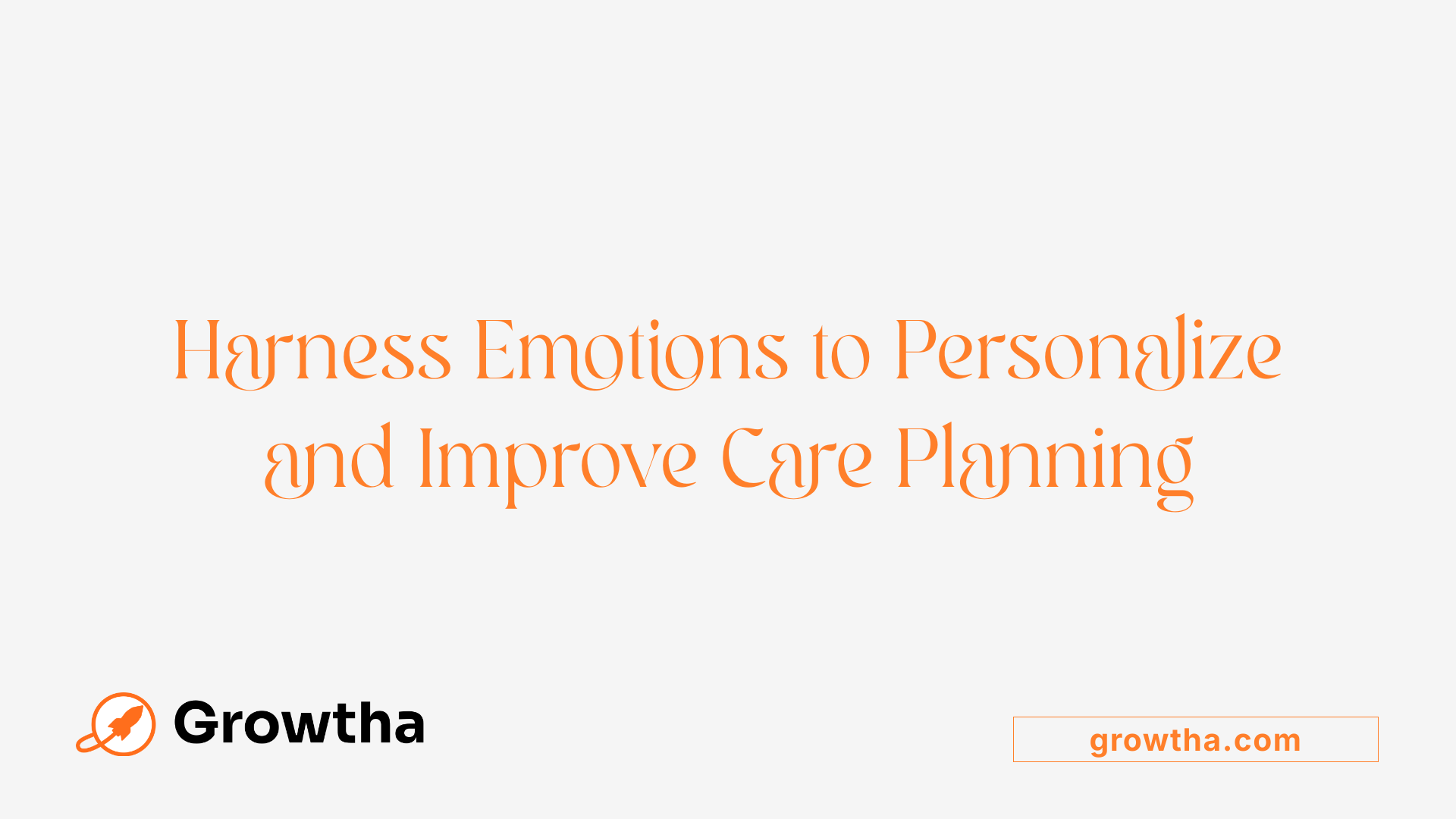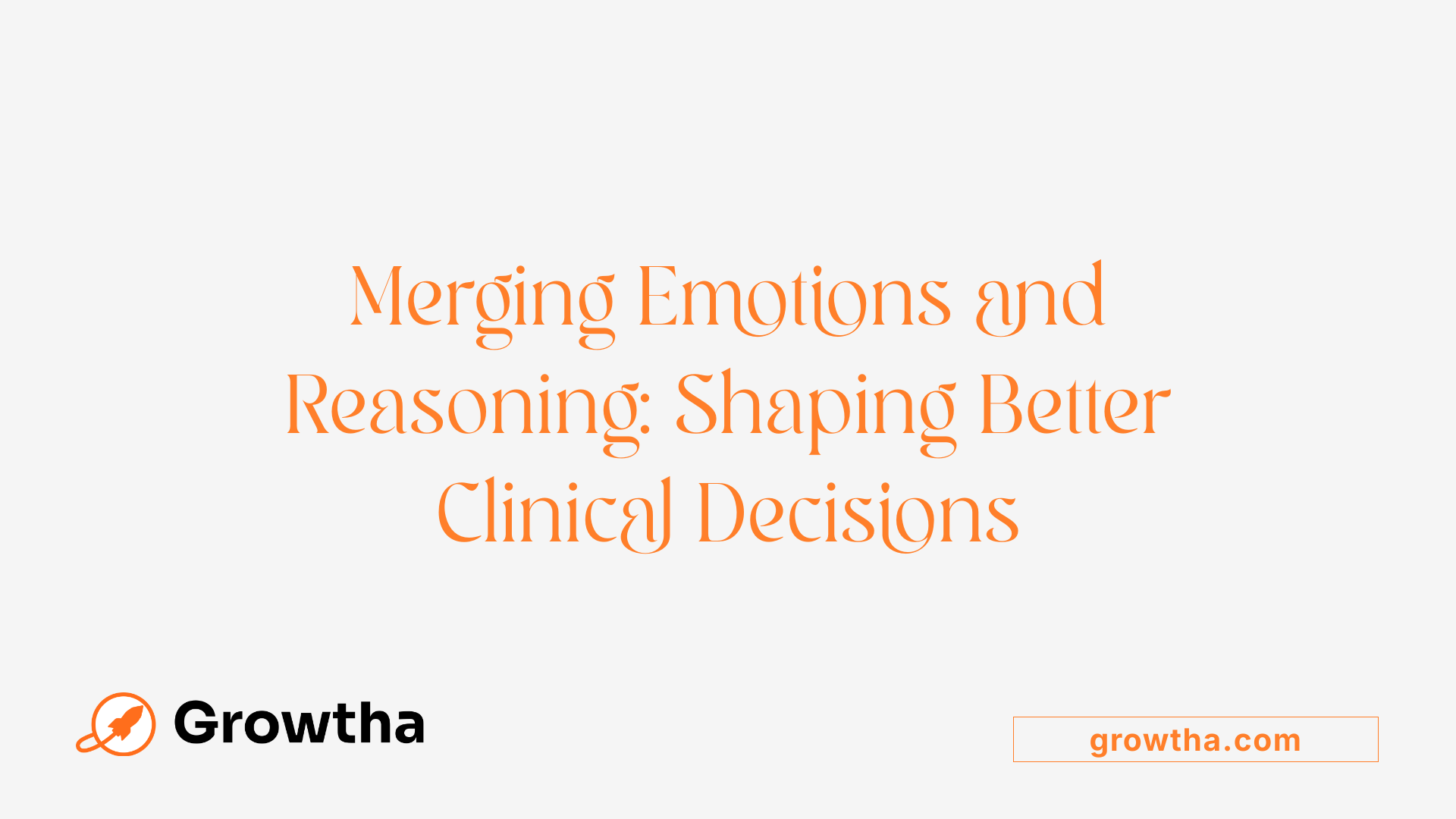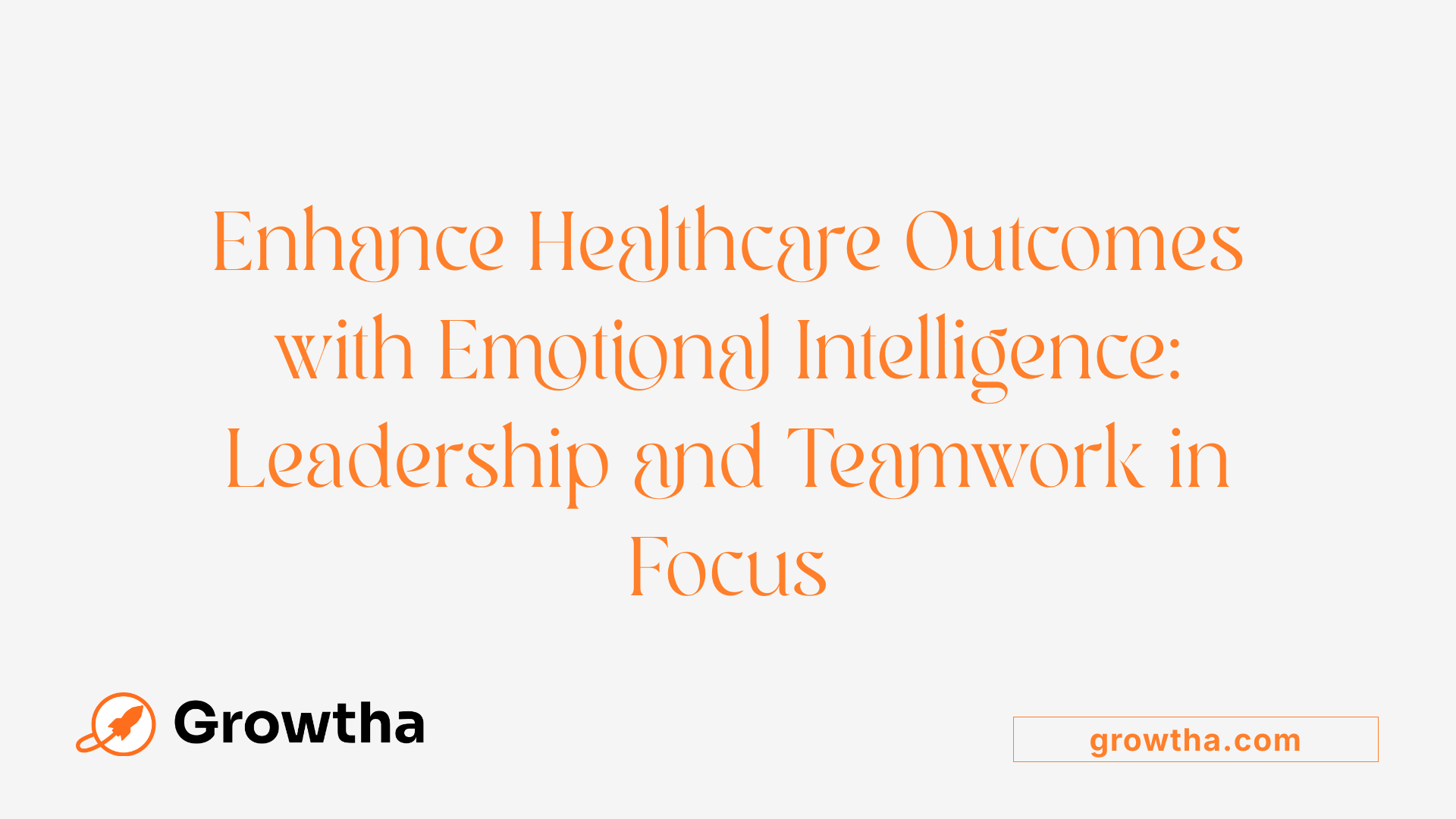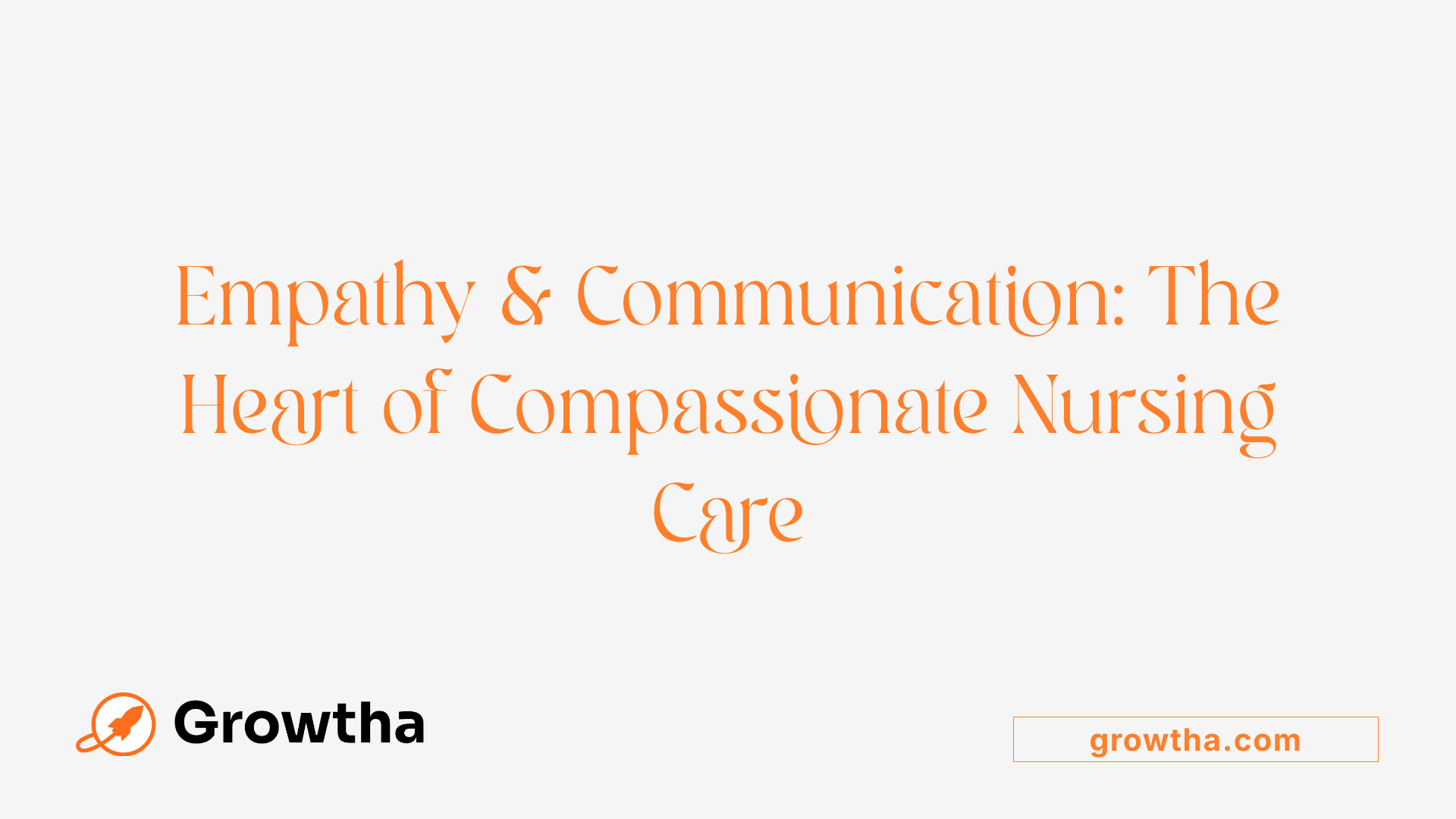The Importance of Emotional Intelligence in Patient Communications
Enhancing Patient Interactions Through Emotional Intelligence


The Importance of Emotional Intelligence in Patient Communications
Understanding the Crucial Role of EI in Healthcare
Emotional Intelligence (EI) has emerged as a fundamental skill in the healthcare sector, directly impacting patient safety, care quality, and medical outcomes. As medical errors remain a significant issue, with over 440,000 deaths annually in the USA alone, the need for improved communication through EI has never been more apparent. This article explores how developing EI enhances patient-provider interactions, fosters compassionate care, and strengthens healthcare teams, ultimately leading to safer, more effective healthcare delivery.
The Connection Between Medical Errors and Communication Failures
Why is it important for healthcare professionals to develop emotional intelligence skills?
In the complex world of healthcare, effective communication is critical for patient safety. Studies reveal that over 440,000 deaths annually in the USA are attributed to medical errors, making it the third leading cause of death. A significant proportion of these errors—around 80%—stem from miscommunication among healthcare providers or between providers and patients.
Emotional intelligence (EI) plays an instrumental role in mitigating these communication failures. EI encompasses abilities such as recognizing and managing one's own emotions, understanding others' feelings, and using this awareness to improve interactions.
Developing EI enhances healthcare professionals’ capacity to perceive emotional cues accurately, which is crucial for clear and empathetic communication. When providers can identify their own emotional states and respond appropriately, they are better equipped to avoid misunderstandings that can compromise patient care.
Furthermore, high EI fosters empathy—a vital component in patient-centered care. Patients who perceive their providers as empathetic tend to be more satisfied, comply better with treatment plans, and have improved health outcomes. For example, studies show that patients feeling understood are more likely to revisit the provider and trust the care process.
In healthcare teams, emotional intelligence contributes to building stronger collaboration and reducing conflicts. Leaders with high EI can create supportive environments where team members communicate openly, share concerns, and work cohesively to prevent errors.
In high-stress settings such as emergency rooms or intensive care units, EI equips healthcare professionals to maintain composure, navigate complex emotional situations, and make thoughtful decisions. Techniques like active listening, mindfulness, and self-reflection—elements of EI training—help providers process information effectively, especially during critical moments.
Additionally, emotional competence supports resilience, enabling health professionals to cope with the emotional toll of medical errors and adverse events. Training programs designed to develop EI skills often include workshops, role-playing, and feedback sessions that refine communication strategies.
In essence, fostering emotional intelligence among healthcare workers is a strategic approach to improving safety, reducing errors, and enhancing the quality of care.
| Aspect | Benefit | Impact on Patient Safety |
|---|---|---|
| Self-awareness | Better emotional regulation | Reduces impulsive decisions |
| Empathy | Improved patient-provider trust | Enhances understanding of patient needs |
| Communication skills | Clear, compassionate dialogue | Minimizes misunderstandings |
| Team collaboration | Cohesive, effective teamwork | Prevents slip-ups and oversights |
| Stress management | Maintains focus under pressure | Reduces medical errors |
Understanding the relationship between communication failures and medical errors underscores the importance of emotional intelligence as a vital component of healthcare training and practice.
In summary, developing emotional intelligence skills helps healthcare professionals communicate more effectively, fosters safe and supportive environments, and ultimately reduces the risk of errors. This holistic approach to professional development aligns with the broader goals of improving patient safety, ensuring quality care, and advancing healthcare outcomes.
Emotional Intelligence as a Key Driver of Patient Safety

What is the significance of emotional intelligence in patient communication and healthcare interactions?
Emotional intelligence (EI) plays a crucial role in healthcare by enhancing how providers communicate with patients and colleagues. It involves recognizing, understanding, and managing one's own emotions, as well as perceiving and responding to others’ feelings effectively. High EI fosters empathy, which is fundamental for building trust, delivering personalized care, and creating a supportive environment.
In practical terms, healthcare professionals with strong EI can navigate sensitive and stressful situations with composure, reduce misunderstandings, and increase patient satisfaction. This, in turn, boosts patient adherence to treatment plans and overall safety. Additionally, EI helps clinicians handle emotional challenges, manage their stress levels, and maintain professionalism in complex scenarios.
Developing EI through reflection, training, and feedback can cultivate better communication skills and emotional awareness. While more direct research is needed to quantify the impact on patient outcomes, evidence suggests that EI contributes indirectly to safer, more effective care by improving provider well-being and fostering therapeutic relationships.
How does EI influence safety outcomes?
A theoretical model integrating EI, communication, and patient safety indicates that abilities such as recognizing and managing emotions can directly impact safety outcomes. For example, correctly identifying a patient’s emotional cues can prevent miscommunication that might lead to errors or poor care planning.
Effective communication facilitated by EI also supports team coordination, which is essential for preventing medical errors and ensuring safety. When healthcare workers understand their own and their colleagues’ emotional states, they can modify their interactions and avoid conflicts or misunderstandings that compromise patient safety.
What is the role of the theoretical model linking EI and safety?
The model suggests that EI influences communication behaviors, which in turn affect the quality of care and safety. It emphasizes that abilities such as emotional awareness and regulation are not just personal skills but also professional tools that can be taught and enhanced through targeted education.
By understanding emotional cues, health professionals can make better decisions under stress, prioritize patient needs effectively, and create a psychologically safe environment for both staff and patients.
How can healthcare providers identify and manage emotions in clinical settings?
Recognizing emotions involves acute perception of cues such as facial expressions, tone of voice, and body language. Managing emotions constructively requires techniques like pausing before responding, not taking comments personally, and maintaining emotional regulation.
In practice, clinicians can self-reflect on their emotional responses, seek feedback, and participate in workshops focusing on emotional competencies. Building awareness of causes and effects of emotions enables better care planning and reduces the risk of errors stemming from miscommunication.
Some effective strategies include active listening, empathy cultivation, and using emotional insights to guide interactions and decision-making. These skills are critical in high-stress situations, such as during critical care or crisis responses, ensuring patient safety and care quality.
Final overview table
| Aspect | Description | Impact on Patient Safety |
|---|---|---|
| Recognition of emotions | Ability to identify internal and external emotional cues | Prevents miscommunication, enhances team coordination |
| Management of emotions | Regulating one's own feelings constructively | Maintains professionalism, reduces errors |
| Communication effectiveness | Clarity, empathy, active listening | Builds trust, improves adherence, reduces misunderstandings |
| Emotional awareness in care | Understanding causes and effects of emotions | Optimizes care planning, enhances emotional safety |
| EI development techniques | Reflection, training, feedback | Improves healthcare interactions and safety outcomes |
In summary, integrating emotional intelligence into healthcare workflows is a vital component in safeguarding patients. It improves communication, fosters collaboration, and creates a safer, more empathetic environment conducive to high-quality care.
Understanding Emotions to Improve Care Planning

How does emotional intelligence impact patient safety, care outcomes, and healthcare quality?
Emotional intelligence (EI) plays a vital role in enhancing patient safety, improving care outcomes, and elevating healthcare quality. At its core, EI involves the capacity to recognize, understand, and manage one's own emotions while also perceiving and influencing the emotions of others.
When healthcare professionals possess high EI, they are better equipped to communicate effectively with patients and colleagues. This improved communication reduces misunderstandings, which are often at the root of medical errors. For example, accurately identifying patients' emotional states helps providers tailor their interactions, fostering trust and cooperation.
Moreover, EI enhances empathy, enabling providers to understand patients’ feelings and perspectives more deeply. This understanding supports personalized care plans that respect individual needs and values, leading to higher patient satisfaction and adherence to treatment.
Effective teamwork is essential for maintaining safety and consistency in healthcare settings. EI promotes collaboration by facilitating conflict resolution, encouraging mutual support, and fostering a positive work environment. Healthcare teams with high EI tend to be more resilient and adaptable during stressful situations, which is crucial for maintaining safety under pressure.
Stress management is another benefit linked to EI. Healthcare providers with strong emotional regulation skills can maintain composure in high-stakes scenarios, reducing errors and preventing burnout. Reduced burnout not only improves staff well-being but also positively affects patient care quality.
In leadership roles, EI supports decision-making, strategic planning, and fostering a safety culture. Leaders with high EI are often better at motivating staff, recognizing team members’ strengths, and guiding organizational change that prioritizes patient safety.
Overall, integrating emotional intelligence into healthcare practice leads to more compassionate interactions, better clinical decisions, and a safer, more effective healthcare environment. Investment in EI training and assessment is recognized as a strategic approach to optimize patient outcomes and foster a culture of continuous safety and improvement.
| Aspect | Impact | Additional Notes |
|---|---|---|
| Communication | Reduces errors, improves clarity | Accurate emotion recognition aids clarity |
| Empathy | Enhances patient satisfaction | Central to patient-centered care |
| Teamwork | Fosters collaboration and conflict resolution | Critical during complex procedures |
| Stress Management | Decreases burnout, maintains performance | Vital in high-pressure cases |
| Leadership | Guides safety culture, influences policies | EI-driven leaders promote safety |
| Overall Care Quality | Elevates standards, patient outcomes | Fundamental for healthcare excellence |
Developing EI involves ongoing education, reflective practices, and feedback mechanisms. Incorporating EI assessments into training curricula can equip healthcare workers with the skills necessary to create safer, more compassionate patient care environments.
The Role of Emotions and Reasoning in Clinical Decisions

How does emotional intelligence influence empathy, compassion, and the provider-patient relationship?
Emotional intelligence (EI) is deeply intertwined with the ability of healthcare providers to connect with patients on a human level. High EI enhances clinicians' capacity to recognize and regulate their own emotions while accurately interpreting patients' emotional cues. This dual-awareness fosters empathy, which is essential for understanding patients' experiences, fears, and concerns.
Research shows a strong positive link between EI and empathy; providers with higher EI tend to demonstrate greater compassion, leading to more trust and satisfaction in the provider-patient relationship. Such emotional attunement supports effective communication, adherence to treatment plans, and improved health outcomes.
Moreover, developing EI through targeted training, reflective practices, and continuous professional development helps preserve empathy, especially during challenging times such as high-stress situations or burnout. Fostering emotional intelligence is thus fundamental for building compassionate, patient-centered healthcare environments and effective leadership within medical teams.
Emotional Regulation and Constructive Management of Emotions
How does emotional intelligence impact patient safety, care outcomes, and healthcare quality?
Emotional intelligence (EI) plays a crucial role in enhancing the safety, effectiveness, and overall quality of healthcare. When healthcare providers possess high EI, they are better equipped to recognize and manage their own emotions and understand the feelings of their patients. This awareness fosters clearer and more compassionate communication, reducing the likelihood of misunderstandings that can lead to medical errors.
Effective emotional regulation helps healthcare professionals stay calm and focused during high-pressure situations, such as emergencies or complex decision-making scenarios. This stability directly impacts patient safety by supporting accurate diagnoses and timely interventions. Moreover, emotionally intelligent providers can respond empathetically to patient concerns, building trust and encouraging adherence to treatment plans, which improves health outcomes.
Teamwork and collaboration are also strengthened by EI. Healthcare environments thrive on effective multidisciplinary cooperation, and emotional awareness enhances mutual respect, reduces conflicts, and facilitates constructive dialogue. Leaders in healthcare with high EI model positive behaviors, making safety a shared value across teams.
In addition, EI contributes to better stress management and resilience among healthcare workers. This decreases burnout and turnover, ensuring continuity of care and maintaining high standards of service. The cumulative effect of these benefits—improved communication, stronger team dynamics, and sustained well-being—results in measurable improvements in patient safety metrics and care quality.
Integrating emotional intelligence into healthcare training and practice creates a safer and more compassionate environment, ultimately elevating the standards of patient care. Cultivating EI not only benefits individual providers but also fosters systemic improvements that enhance clinical safety and patient satisfaction.
| Aspect | Impact | Example |}| |--------------------------|------------------------------------------------------------------------------------------------------------------------------------------------------------------|--------------------------------------------------------------| | Communication | Reduces miscommunication, enhances clarity, fosters empathy | Clearer explanations of procedures | | Stress Management | Improves provider resilience, reduces errors | Staying calm in emergencies | | Teamwork | Promotes cooperation, resolves conflicts | Interprofessional collaboration | | Leadership | Guides safety culture, models positive behaviors | Leading safety protocols | | Patient Outcomes | Improves adherence, satisfaction, and trust | Compassionate patient interactions |
Understanding the role of emotional intelligence underscores its importance in not just individual interactions but system-wide safety concerns, making it a foundational element in delivering high-quality healthcare.
The Impact of EI on Healthcare Leadership and Team Collaboration

What is the role of emotional intelligence in healthcare training, leadership, and interprofessional collaboration?
Emotional intelligence (EI) is integral to healthcare, significantly influencing training programs, leadership development, and team collaboration. In the realm of healthcare education, EI equips professionals with vital skills such as effective communication, empathy, and the ability to navigate complex interpersonal dynamics. These skills foster a more patient-centered approach, reducing misunderstandings and enhancing care quality.
In leadership, high EI enables healthcare leaders to manage conflicts constructively, motivate their teams, and adapt to the ever-changing clinical environment. Leaders with strong EI can create a climate of trust and psychological safety, encouraging open dialogue and continuous improvement. This supportive environment is essential for implementing changes effectively and maintaining high standards of care.
Interprofessional collaboration benefits immensely from EI as well. It enhances mutual understanding among diverse healthcare providers, facilitating smoother teamwork and coordination. Through recognizing and managing their own emotions, and understanding others’ feelings, healthcare professionals can communicate more clearly and resolve conflicts efficiently.
Developing EI skills leads to increased resilience, better stress management, and improved decision-making capabilities. This, in turn, aligns with the core goals of healthcare systems—to deliver safe, effective, and compassionate patient care. Incorporating EI training into medical education and ongoing professional development ensures that healthcare workers are prepared to lead, collaborate, and adapt in complex clinical settings.
Ultimately, EI fosters a culture of empathy, respect, and teamwork, which are crucial for advancing healthcare quality and safety. Whether through formal workshops, reflective practices, or experiential learning, enhancing emotional intelligence among healthcare professionals translates into better patient outcomes and a healthier working environment for staff.
Developing and Enhancing Emotional Intelligence Skills in Healthcare Professionals
What strategies can healthcare professionals employ to develop their emotional intelligence?
Healthcare professionals can enhance their emotional intelligence (EI) through various deliberate practices and educational approaches. Reflective practice and seeking feedback are crucial components. Professionals are encouraged to regularly analyze their interactions and emotional responses, gaining insights into their emotional triggers and response patterns. Peer and supervisor feedback can provide external perspectives, highlighting areas for growth.
Educational programs, workshops, and specialized training courses also play a vital role. These programs often incorporate activities such as role-playing, case discussions, and immersive exercises that simulate clinical situations requiring emotional awareness and regulation. Techniques like mindfulness, meditation, and emotional regulation exercises help professionals manage stress and respond thoughtfully.
Furthermore, educational curricula are increasingly integrating EI development, emphasizing self-awareness, empathy, relationship management, and social skills. These activities foster a deeper understanding of oneself and others, leading to improved patient care, team collaboration, and conflict resolution.
How can healthcare institutions measure and assess emotional intelligence?
Assessment of EI in healthcare professionals involves standardized tools and scales designed to quantify emotional competencies. Commonly used measures include self-report questionnaires such as the Emotional Intelligence Scale (EIS) and the Trait Emotional Intelligence Questionnaire (TEIQue). These assessments provide scores across multiple dimensions like emotionality, sociability, self-control, and well-being.
Institutional evaluation might also utilize 360-degree feedback, where colleagues, supervisors, and sometimes patients evaluate the professional's EI-related behaviors. Some organizations incorporate scenario-based assessments and simulations that gauge responses in high-stress or emotional situations.
Regular assessment can track progress over time and identify specific areas needing improvement, guiding targeted training interventions. Combining quantitative scores with qualitative feedback fosters a comprehensive understanding of a healthcare provider's emotional competencies.
What insights do educational and research studies provide regarding the benefits of emotional intelligence in healthcare settings?
Educational and research studies demonstrate that emotional intelligence (EI) plays a vital role in enhancing healthcare outcomes by improving communication, fostering empathy, and promoting effective teamwork. Developing EI through targeted training—such as self-reflection, peer feedback, and simulation—can reduce burnout among healthcare professionals and strengthen leadership capabilities.
Incorporating EI into medical and health professions education supports a more compassionate, patient-centered approach, leading to higher patient satisfaction and better care quality. Evidence also indicates that high EI contributes to better conflict management, increased resilience, and safer clinical environments.
Overall, integrating EI development into healthcare training universally benefits providers, patients, and the entire healthcare system. It fosters environments where compassionate communication and emotional safety are prioritized, ultimately improving clinical decision-making, reducing medical errors, and enhancing job satisfaction for healthcare workers.
| Method of Development | Focus Area | Benefits |
|---|---|---|
| Reflective Practice and Feedback | Self-awareness and self-regulation | Better understanding of emotional responses, improved communication |
| Educational Programs | Empathy, social skills, team collaboration | Reduced burnout, increased resilience, leadership growth |
| Simulation and Role-Playing | Practical application of EI skills | Enhanced conflict management, patient-centered care |
| Formal Assessments (scales, 360-degree feedback) | Monitoring progress | Tailored training, ongoing development |
By adopting these strategies, healthcare professionals can not only improve their emotional competencies but also positively influence patient outcomes, team dynamics, and their personal well-being.
Fostering Compassion and Connection Through Emotional Intelligence
What is the role of emotional intelligence in healthcare training, leadership, and interprofessional collaboration?
Emotional intelligence (EI) is a vital component in healthcare that influences how professionals communicate, lead, and work collaboratively. In training programs, EI helps students and practitioners develop self-awareness, empathy, and social skills, which are critical for effective patient care and teamwork.
Leaders in healthcare with high EI can manage conflicts better, motivate staff, and create a supportive environment that fosters trust and respect. They are more adept at recognizing and managing their own emotions while understanding and responding to the emotions of others, which enhances team cohesion and collaboration.
Interprofessional collaboration thrives when team members possess strong EI, facilitating clear communication, empathy, and conflict resolution. These qualities help reduce misunderstandings, improve coordination, and promote a patient-centered approach.
Studies show that integrating EI training into medical education and continuous professional development improves clinical performance, job satisfaction, and patient outcomes. It also supports resilience in stressful situations, such as during pandemics or critical care scenarios.
In summary, EI influences leadership effectiveness, teamwork, and overall healthcare quality. Developing these skills ensures healthcare professionals can build trusting relationships, lead with compassion, and foster a culture of safety and excellence.
The Chain Mediating Effect of Empathy and Communication on Caring Ability

What is the mediating role of empathy and communication?
Research in healthcare consistently shows that emotional intelligence (EI) significantly influences nurses' caring abilities. Specifically, empathy and communication serve as critical mediators in this relationship. Empathy enables nurses to understand and share their patients' feelings, creating a compassionate connection that enhances patient trust.
Effective communication, on the other hand, facilitates the clear conveyance of understanding and support, fostering a safe and supportive environment. Together, these mediators help translate a nurse's emotional intelligence into tangible caring behaviors that meet patients' emotional and physical needs.
Studies indicate that these mediators account for a significant portion of the variance in caring ability, with empathy and communication acting as conduits through which high EI manifests as improved patient-centered care.
How can nursing students enhance their caring skills?
Educational strategies should focus on cultivating both empathy and communication skills alongside EI. Techniques such as role-playing, reflective exercises, and simulations help students practice recognizing patient emotions, responding empathetically, and applying effective communication.
Incorporating curricula that include personality assessments, like the DISC profile, helps students understand their own communication styles and those of others. This awareness fosters adaptability and improves interactions in clinical settings.
Professional development activities, such as workshops on emotional regulation, active listening, and cultural competence, further reinforce these skills. Consistent practice and feedback are vital for embedding empathic and communicative behaviors into everyday nursing care.
Impact of enhanced caring skills on patient satisfaction and outcomes
When nurses develop stronger caring skills through heightened emotional intelligence, patient experiences improve notably. Patients report higher satisfaction and feel more understood, which enhances compliance with treatment plans.
Better communication and empathy also lead to decreased misunderstandings and errors, promoting safety and efficacy in care. Empathetic nurses can better alleviate patients' fears and concerns, contributing to emotional comfort and better recovery.
Furthermore, improved caring abilities foster a positive work environment, reducing burnout and turnover among nursing staff, as workers feel more competent and valued.
Here is a summary of how emotional intelligence, empathy, and communication intertwine to improve nursing care:
| Aspect | Role | Effect |
|---|---|---|
| Emotional Intelligence | Self-awareness & regulation | Better personal responses, resilience |
| Empathy | Understanding patient emotions | Builds trust, support |
| Communication | Expressing understanding & info | Clarifies care, reduces errors |
| Caring Ability | Enhanced by EI, mediated by empathy and communication | Improves patient satisfaction and safety |
Ultimately, integrating these competencies into nursing education and practice is essential for cultivating caring skills. By doing so, nurses can provide holistic, compassionate care that aligns with patients' emotional needs, promoting better health outcomes and satisfaction.
Building a Culture of Emotional Intelligence in Healthcare
As healthcare continues to evolve, integrating emotional intelligence into all aspects of medical practice and education becomes essential. From reducing medical errors to fostering compassionate care, EI supports safer environments, stronger provider-patient relationships, and more effective teamwork. Training programs focused on developing self-awareness, empathy, and stress management are crucial for cultivating resilient healthcare professionals. By prioritizing emotional competence, healthcare organizations can enhance patient satisfaction, improve clinical outcomes, and create a more supportive, collaborative work culture. Investing in EI is not just beneficial; it is vital for the future of patient-centered, high-quality healthcare.
References
- A model for the role of emotional intelligence in patient safety
- Emotional Intelligence: A Critical Piece of Leadership in ...
- Emotional Intelligence and Productive Relationships with ...
- Exploring the relationship between emotional intelligence and ...
- Empathy, emotional intelligence and interprofessional ...
- The Importance of Emotional Intelligence in Nursing
- Elevating healthcare with emotional intelligence: Lessons...
- The chain mediating effect of empathy and communication ...







